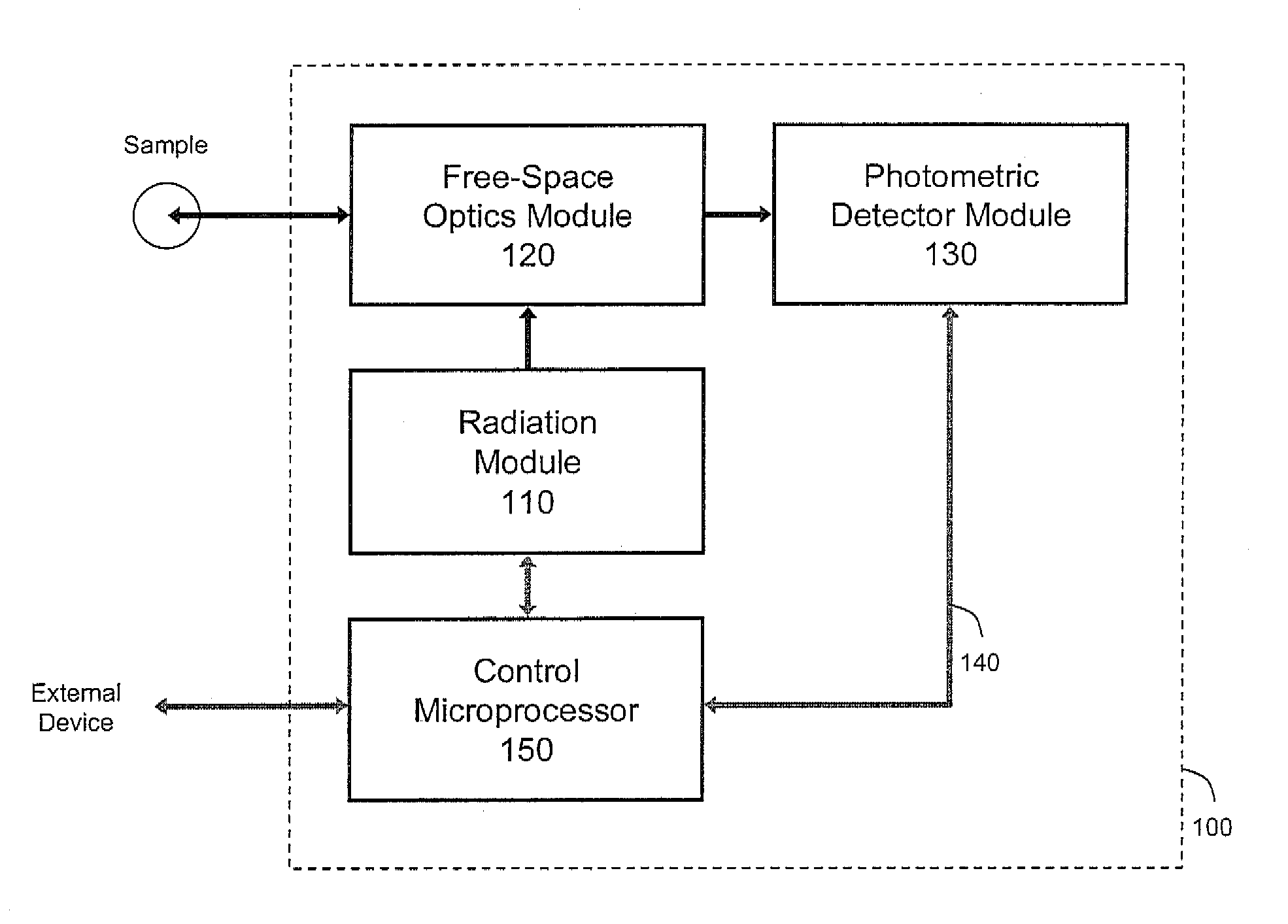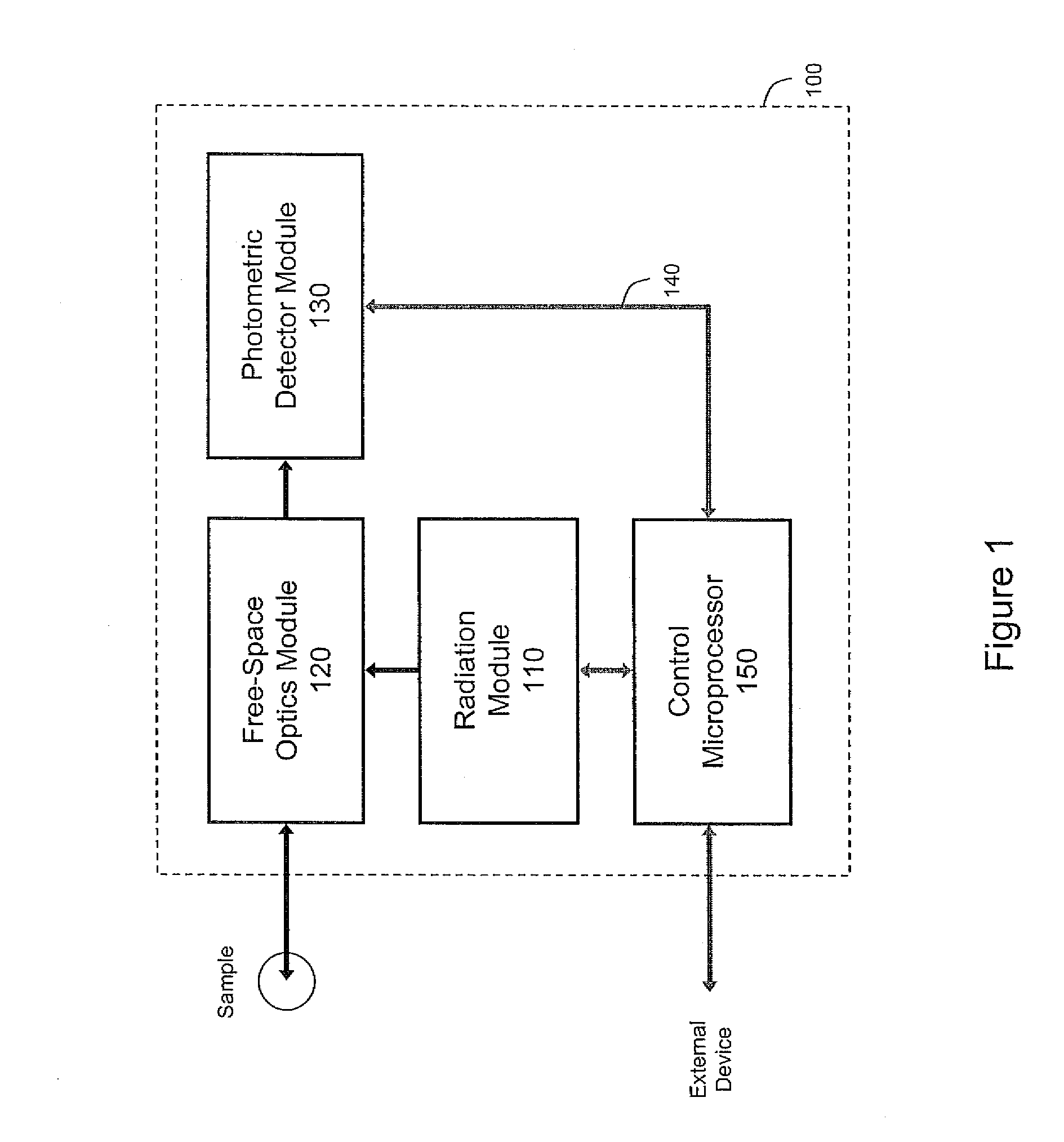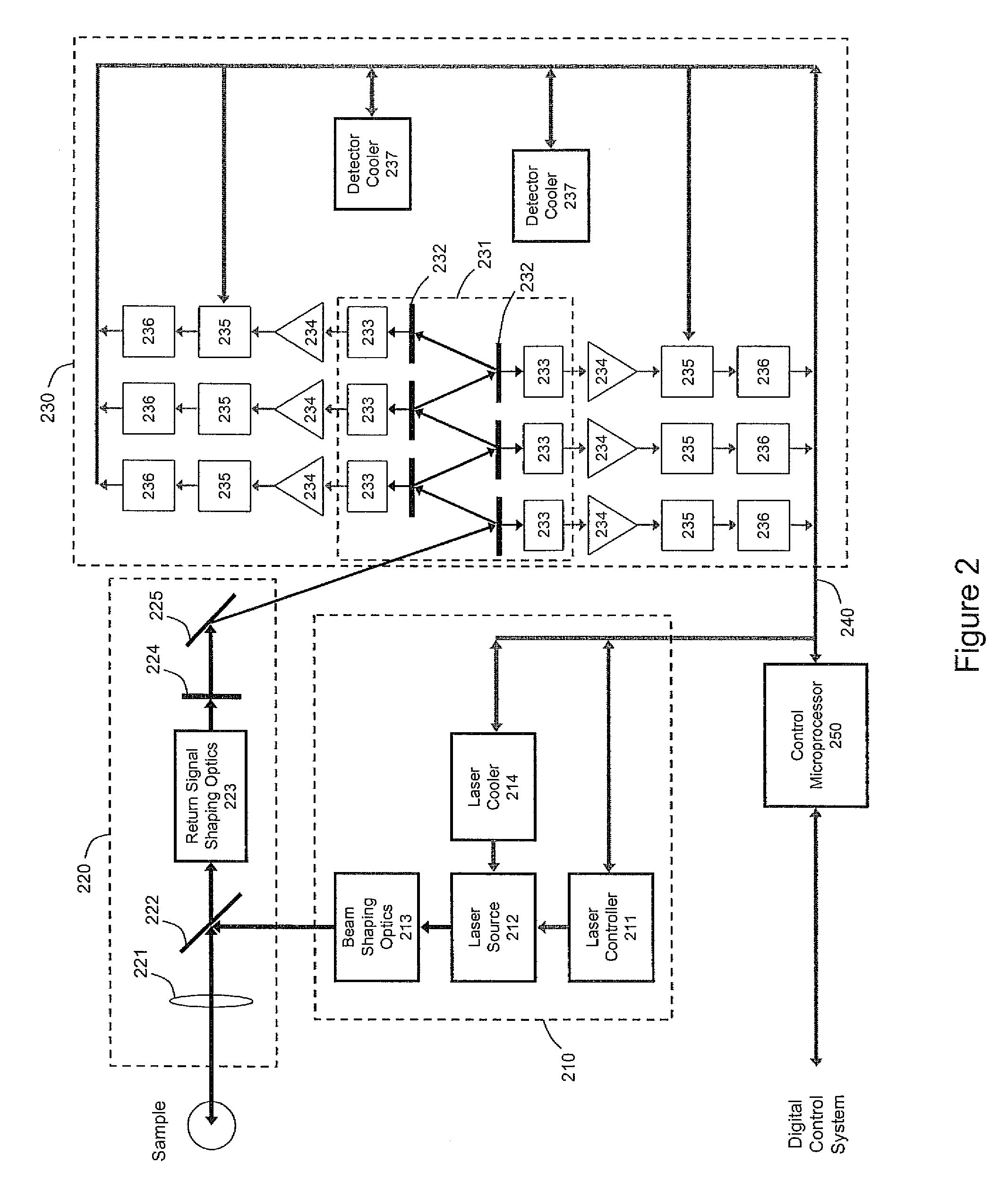Chemical analyzer for industrial process control
a technology of industrial process control and chemical analyzer, which is applied in the direction of optical radiation measurement, instruments, spectrometry/spectrophotometry/monochromator, etc., can solve the problems of not working well, limiting the type of sensors to the measurement, and failing to meet the needs of homonuclear species such as nitrogen, oxygen, chlorine, hydrogen and fluorine that cannot, etc., to achieve the effect of maximizing optical throughput, low cost and robustness
- Summary
- Abstract
- Description
- Claims
- Application Information
AI Technical Summary
Benefits of technology
Problems solved by technology
Method used
Image
Examples
Embodiment Construction
[0018]A schematic representation of the invention is shown in FIG. 1. The black arrows indicate the direction of the primary optical signals; the gray arrows indicate the direction of the primary electrical signals. A radiation module 110 which includes a laser radiation source is controlled by a control microprocessor 150. The laser source can be of any type but is preferably a solid state laser diode. In a preferred embodiment of the invention, the laser radiation source emits radiation primarily at a wavelength of 785 nm.
[0019]After leaving the radiation module, the laser radiation is transferred via free-space optics to a free-space optics module 120. In a preferred embodiment of the invention, the optics module includes a selective reflector which treats the laser radiation differently than other radiation, in particular the radiation that comprises the return signal (defined below). The selective reflector may reflect the laser radiation while allowing other radiation to pass ...
PUM
 Login to View More
Login to View More Abstract
Description
Claims
Application Information
 Login to View More
Login to View More - R&D
- Intellectual Property
- Life Sciences
- Materials
- Tech Scout
- Unparalleled Data Quality
- Higher Quality Content
- 60% Fewer Hallucinations
Browse by: Latest US Patents, China's latest patents, Technical Efficacy Thesaurus, Application Domain, Technology Topic, Popular Technical Reports.
© 2025 PatSnap. All rights reserved.Legal|Privacy policy|Modern Slavery Act Transparency Statement|Sitemap|About US| Contact US: help@patsnap.com



